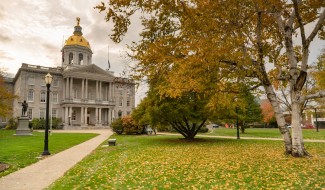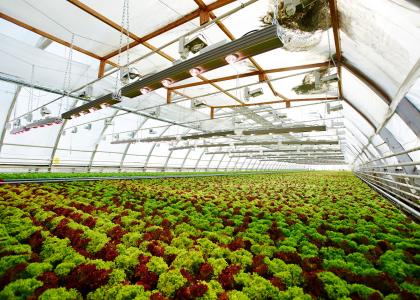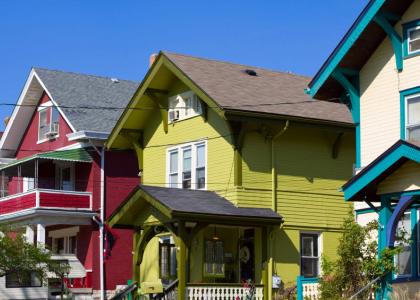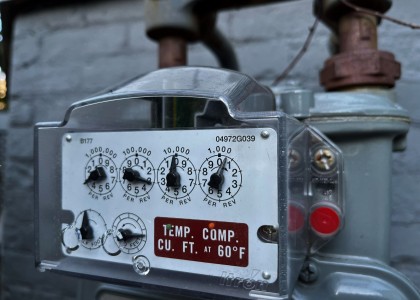New Hampshire utilities last week proposed to refine their energy efficiency programs under the banner “NHSaves,” and extend them for three years. The state’s Public Utilities Commission (PUC) will be reviewing the proposal but has in recent years taken a skeptical stance on the value of energy efficiency. In a time of concerns about inflation, the proposal would ensure continuation of cost-saving programs without the risk of interruption, and the PUC ought to approve these programs for three years.
New Hampshire traditionally has been the laggard among northeastern states on energy efficiency. In most of ACEEE’s State Energy Efficiency Scorecards from 2010 to 2019, New Hampshire ranked between 20th and 22nd among U.S. states. Neighboring Maine used to rank a little below New Hampshire, but in recent years Maine has increased energy efficiency budgets, resulting in significant energy savings. Maine ranked fifth in our most recent State Energy Efficiency Scorecard.
In 2020, New Hampshire improved to 18th place in the Scorecard, driven by expanded utility energy efficiency budgets and programs. Granite State efficiency programs were due to grow in 2021 under a settlement agreement between the state’s largest utilities and other parties in the case, but the PUC rejected the expansion, reducing the budget well below 2020 levels and proposing to leave consumers on their own to figure out energy-saving home upgrades, an ineffective approach to energy efficiency. After that decision, the legislature in 2022, on a bipartisan basis, restored efficiency funding to the prior year’s level (after accounting for inflation) and clarified policies for other programming framework elements, such as benefit-cost testing and performance incentives for utilities.
The programs provide rebates for upgrading to more efficient home heating systems, financing for home weatherization, and incentives for a variety of other home and business efficiency measures. In 2021, the most recent year with full aggregated reporting, NHSaves programs resulted in more than $260 million in benefits, producing $3.56 in benefits for every $1 invested. In 2021, the programs delivered almost 6,000 energy efficiency projects in residential homes and apartments, 206 projects in municipal buildings, 2,374 projects with large commercial customers, and 11,412 projects with small businesses and nonprofits around the state. These projects benefit all customers, not only the residential and commercial buildings where they take place: they lower electricity system costs by reducing strain on the grid, and they have a meaningful impact on the local economy through the work of a wide network of contractors and vendors.
In January 2023 the PUC issued a report that was critical of the programs, apparently seeking to re-adjudicate a variety of issues addressed in the 2022 law and earlier legislation. The PUC report in turn was widely criticized by many parties in the case (for instance, the comments of a former PUC and utility staffer noted that the legislature had recently ruled on many of the issues raised). The PUC then closed the docket on its report and did not respond to the comments that were filed.
New Hampshire’s legislature twice passed laws to improve its efficiency programs (the second, SB 113, was passed in 2023). The State Office of the Consumer Advocate strongly supports the efficiency programs, as do many local businesses. Home builders and local contractors have lobbied the legislature for steady efficiency funding to avoid the roller coaster of efficiency programs being shut down in the fourth quarter because they run out of money.
The state’s utilities last week filed the 2024–2026 Triennial NHSaves Energy Efficiency Plan. The plan makes only a few changes to what have been successful programs. The three-year plan is aimed at allowing the programs to continue unabated for at least two and a half years, avoiding a year-end Scrooge-like situation of having to shut down the programs just before the holidays. Other changes include adding a multifamily pathway within the Home Performance program, starting targeted efforts for electric baseboard heat conversions, and converting pilot demand response programs into full programs.
NHSaves has been successful at reducing energy use, improving home comfort, and providing jobs for New Hampshire contractors and other businesses. We would like to see the programs grow, as was proposed in 2021, so that the economic and energy savings and benefits can grow as well. At a minimum, the PUC should approve the proposed three-year efficiency programs and budgets and allow the current programs to be continued. Given persistent inflation, New Hampshire’s PUC should help the state’s households and businesses reduce their energy bills.




